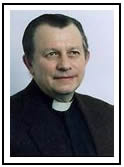Now, mind you that some of his conclusions and discussions are not always that ‘conservative’, but his analysis of Cash’s like and the resulting “apocalypse” revealed at the end of his life is quite stirring and powerful. I encourage you to read the whole article, but – for time’s sake – below are a couple of good excerpts:
A Life
Johnny Cash was born into a Southern Baptist family in Arkansas in 1932. A traumatic childhood was followed by a brief army career before he married, started a family, and began his recording career at Sun Records in 1955.[2] His music combined seemingly contradictory strands from the start. On the one hand, he quickly moved to Columbia Records because they allowed him to record Gospel, while, on the other, he was also penning darker lyrics: “I shot a man in Reno just to watch him die” (Folsom Prison Blues). The three albums, “Love,” “God,” and “Murder,” released in 2000, showcase the tensions of Cash’s songbook.
Touring, amphetamine abuse, and divorce took their toll, however. In 1967, Cash had a religious experience. Though he would claim that he had always been a Christian, his persona was increasingly marked by an evangelical tinge. In 1970, he declared his faith on national TV, in May 1971, he made a public profession at Evangel Temple in Nashville.[3]
Gospel songs and family members were already important avenues of biblical influence on Cash. In the early 1970s, however, Bible study became “an important part” of his life.[4] Cash befriended, among others, Billy Graham. According to Steve Turner, “Graham … was intrigued by Cash’s ability to be candid about his faith and yet find acceptance with sections of society that traditionally were cynical about Christianity.”[5] His view of the Bible was deeply influenced by the Dispensational Evangelicalism that Graham represented. In 1986, the man whose stage attire had gained him the name, “The Man in Black,” wrote a novel about St Paul, The Man in White. In the introduction, Cash writes: “I believe the Bible, the whole Bible, to be the infallible, indisputable Word of God.”[6] Such a statement, however, does not do justice to his Bible. As we shall see, his ability to hold disparate elements together—gospel/murder, candid faith/popularity—is also clearly evident in his statements about his Bible.[7]
…
John’s Apocalypse
Turning to Revelation, we find that our second author left no account of his work’s origins. Indeed, Leonard Thompson suggests that our interest would have puzzled him.[36] So how do scholars reconstruct him? How is his method evaluated? (The Apocalypse’s impact is taken as read here.)
Despite speculation about its coherence, Revelation’s unity is usually assumed. Our author calls himself “John.” As context, he offers a place, “Patmos” (1:9); a time, “the lord’s day” (1:10); and a social location, he is an exiled Christian (1:9). Chapters 2 and 3 appear to describe actual situations, suggesting an intimate knowledge of the seven churches. John’s remonstrations show a pastoral interest in, and an authority to speak to, their circumstances. The former suggests that his text would have been tailored to his audience(s). The latter is implicit, but whatever his authority, it had not gone unchallenged; the Thyatiran church tolerated the prophetess, Jezebel (2:20-21). Though John never calls himself a prophet, his words are “words of prophecy” (1:3). Underlying his text is an ideology that sees assimilation to the imperial world as embracing another gospel. He also assumes that persecution is what his gospel entails.
Judith Kovacs and Christopher Rowland note:
“Given the many references to visions in early Christian texts, it would be an excessively suspicious person who would deny that authentic visions lie behind some or all of these literary records. This is especially true of the Apocalypse itself. It is likely that actual visions, rather than literary artifice alone have prompted the words we now read.” [37]
Revelation is not simply transcribed visionary experience, however. As conservative an exegete as Leon Morris has suggested that the visions took place over several years[38] and that behind the text lies “much apocalyptic reading.”[39] Others have pointed out the allusions to Ezekiel and Daniel and suggested that John meditated upon these works.[40] John Sweet speaks for many when he writes that John was an author “in general control of his materials.”[41] On his use of Ezekiel, for example, Sweet writes:
[a] study of the references … shows that [John] had a creative grasp of that diffuse and obscure book; he has clarified and concentrated its message and enlarged its vision.[42]
That John would have admitted “interpretive inadequacy” seems unlikely. In comparing the two, it is clear that similar processes occurred. Originating texts—John’s scriptures (and any available apocalyptic texts) and Cash’s dream book—initiate the process. A dream/visions provide “words.” These tap into specific scriptures, interacting with them over time to produce the final texts. These generate a reception history.
Conclusion: The Better Apocalypse!?





